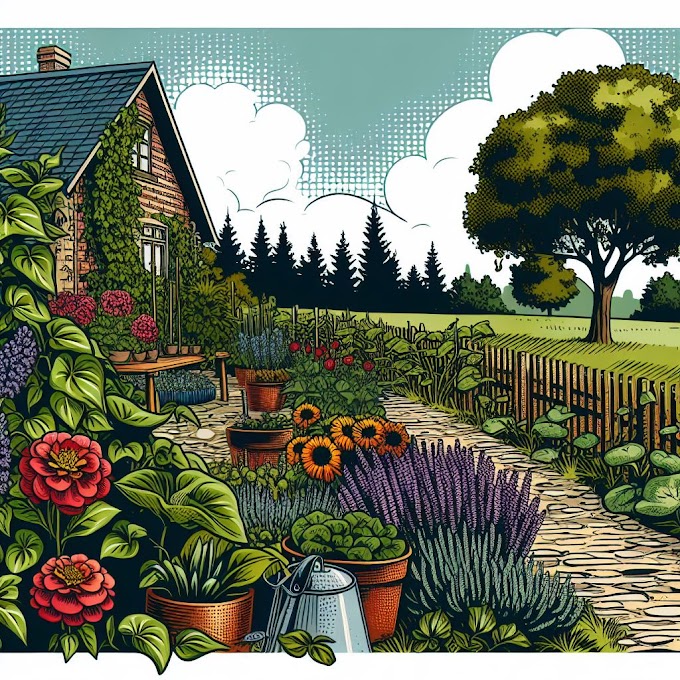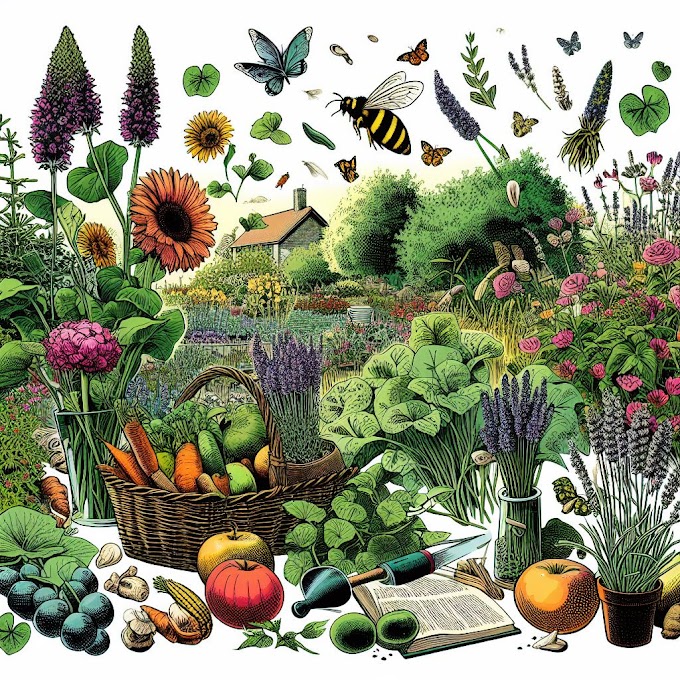DIY Neem Spray Recipe for Plant Health and Pest Control


Here's a simple recipe for making your own neem spray at home, along with a guide to which plants benefit most from its use:
Ingredients:
- 1 tablespoon neem oil
- 1 teaspoon liquid soap (such as mild dish soap or castile soap)
- 1 quart (4 cups) warm water
Instructions:
1. In a small bowl, combine the neem oil and liquid soap. Mix well to emulsify the oil with the soap.
2. Fill a spray bottle with warm water, leaving some space at the top to add the neem oil mixture.
3. Add the neem oil and soap mixture to the spray bottle.
4. Close the spray bottle tightly and shake well to thoroughly mix the ingredients.
Your homemade neem spray is now ready to use!
How to Use:
- Shake the neem spray bottle well before each use to ensure the ingredients are properly mixed.
- Spray the neem solution onto both the tops and bottoms of plant leaves, as well as the stems, until they are thoroughly coated.
- Apply the neem spray in the early morning or late afternoon when temperatures are cooler and the sun is not too harsh.
- Repeat the application every 7-14 days, or as needed, to control pests and diseases.
Which Plants Benefit from Neem Spray:
1. Vegetable Garden:
Neem spray can be used on a variety of vegetable plants, including tomatoes, peppers, cucumbers, squash, and leafy greens, to control common pests like aphids, whiteflies, caterpillars, and spider mites.
2. Fruit Trees:
Neem spray is effective for protecting fruit trees such as citrus, apple, peach, and plum from pests like scale insects, mealybugs, and fruit flies.
3. Ornamental Plants:
Neem spray can be safely used on ornamental plants like roses, azaleas, and hibiscus to control aphids, thrips, and powdery mildew.
4. Herbs:
Neem spray can help keep herb plants like basil, mint, and parsley free from pests such as whiteflies, spider mites, and aphids.
5. Indoor Plants:
Neem spray is also safe to use on indoor plants to control common pests like fungus gnats, mealybugs, and scale insects.
By using this homemade neem spray regularly, you can help protect your plants from pests and diseases while promoting their overall health and vitality.
Always test the spray on a small area of your plants before applying it more broadly, especially on sensitive or newly planted specimens.
⚠ Cautions and Warnings:
1. Skin Sensitivity:
Neem oil may cause skin irritation in some individuals, especially those with sensitive skin. Avoid direct contact with the undiluted neem oil and wear gloves when handling the concentrated solution.
2. Eye Irritation:
Avoid contact with eyes when applying neem spray. If contact occurs, flush eyes thoroughly with water and seek medical attention if irritation persists.
3. Test Patch:
Before applying neem spray to all plants, test it on a small area of one or two leaves and wait 24 hours to check for any adverse reactions. Discontinue use if signs of leaf burn or other damage occur.
4. Avoid Overuse:
Do not exceed the recommended application rate or frequency, as excessive use of neem spray may lead to phytotoxicity or damage to plants. Follow the instructions carefully and apply only as needed.
5. Do Not Spray in Direct Sunlight:
Apply neem spray during cooler times of the day, such as early morning or late afternoon, to prevent leaf burn or damage from sun exposure.
6. Store Properly:
Store neem oil in a cool, dark place away from direct sunlight and heat sources. Keep out of reach of children and pets.
7. Not for Consumption:
Neem oil is intended for external use only and should not be ingested. Keep neem spray away from food, drinks, and animal feed.
8. Consultation:
If you are unsure about using neem spray on specific plants or if you have concerns about potential interactions with other pesticides or treatments, consult with a gardening expert or extension service before application.
By following these precautions and guidelines, you can safely and effectively use neem spray to protect your plants from pests and diseases while minimizing risks to yourself, your plants, and the environment.
























